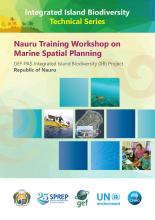Trialling gene drives to control invasive species: what, where and how?
Alphey, L.
,
Campbell, K.
,
Edgington, M.
,
Harvey-Samuel, T.
2019
The control of invasive species would be enhanced through the addition of novel, more effective and sustainable pest management methods. One control option yet to be trialled in the field is to deploy transgene-based Gene Drives: technologies which force the inheritance of a genetic construct through the gene pool of a wild population, suppressing it or replacing it with a less harmful form. There is considerable interest in applying gene drives to currently intractable invasives across a broad taxonomic range. However, not all species will make efficient or safe targets for these technologies. Additionally, the safety and efficacy of these systems will vary according to where they are deployed, the specific molecular design chosen, and how these factors interact with the ecology of the target pest. Given the transformative but also controversial nature of gene drives, it is imperative that their first field trials are able to successfully demonstrate that they can be used safely and efficiently. Here, we discuss how to maximise the probability of this outcome through considering three important questions: What types of invasive species should we use to trial gene drives? Where should we be trialling them? and How should these trials be conducted? In particular, we focus on the ecological, genetic and geographic features of small, isolated islands which make them ideal locations for these initial trials. A case study of an island invasive that is deemed highly appropriate for gene drive intervention, and for which gene drive development is currently underway (Mus musculus), is used to further explore these concepts

